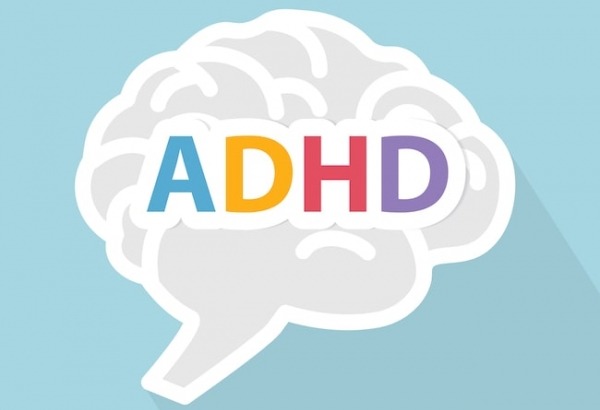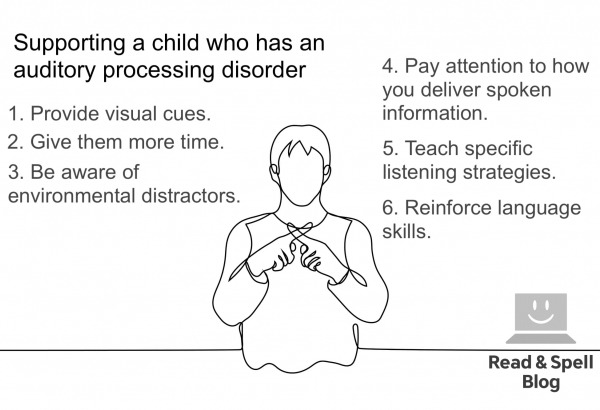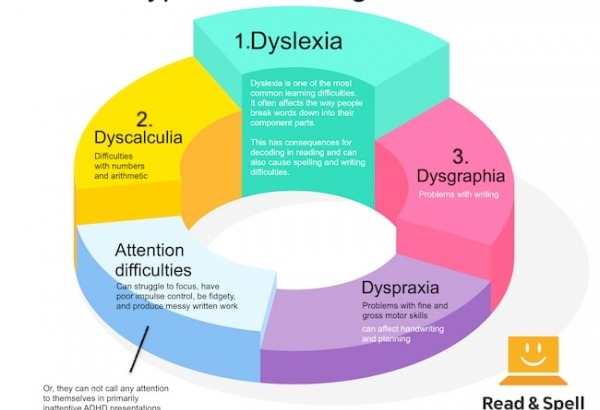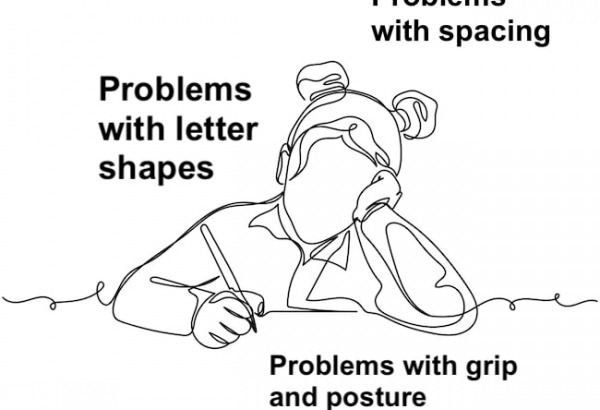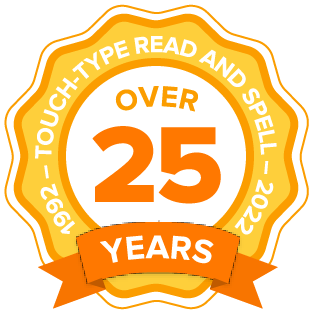6 ADHD blogs
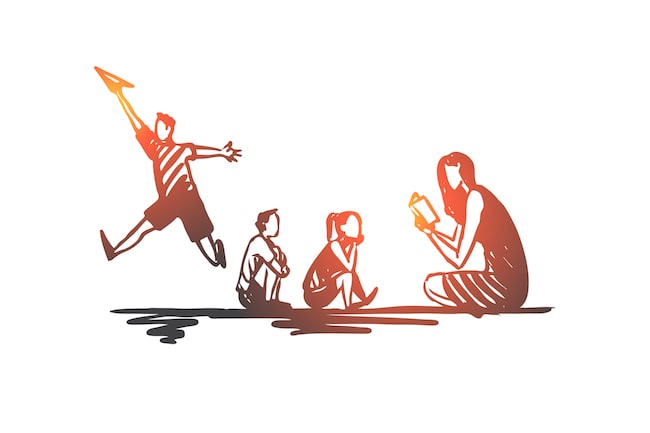
Attention deficit hyperactivity disorder, commonly referred to as ADHD, is a learning difficulty that affects children and adults. In younger individuals, it may be characterized by an inability to sit still at school, difficulty staying focused, impulsive outbursts in the classroom, tantrums at home, and/or trouble staying organized.
A child with ADHD can have messy handwriting and a hard time paying attention during lessons, which may result in poor academic performance. He or she might also struggle with social skills and develop a negative self-image that can lead to acting out. Adults with ADHD find their hyperactivity may improve with age but many still experience difficulties staying focused, prioritizing, planning, and completing projects.
Some of the symptoms of ADHD can also be considered strengths. For example, people have observed enhanced creativity, problem solving skills, greater imagination, and a better sense of humor in children and adults with attention difficulties. Individuals with ADHD often have a high activity level which gives them more energy to engage with the world around them. They also potentially have a greater ability to persevere in the face of difficulty.
Learn more about ADHD strengths in this blog.
ADHD vs. ADD
ADHD is nowadays an umbrella term used to describe attention difficulties with hyperactive and impulsive, inattentive, and combined presentations. Inattentive presentations were formerly referred to as attention deficit disorder or ADD. When consulting older articles or blogs, keep in mind that the situation used to be the other way around with ADD being the umbrella term used to refer to attention difficulties with and without hyperactivity.
Whereas kids with ADHD are known for their hyperactivity, primarily inattentive ADHD presentations (ADD) can be harder for parents and teachers to spot. Children with ADD may sit quietly during a lesson and appear to be paying attention. Nonetheless, they can be struggling to focus on a given task and this lack of attention can cause them to miss out on important information. This is especially the case when they are expected to focus for extended periods of time.
These kids can also have trouble making friends at school and may struggle to communicate with teachers and parents about their experience. In some cases, when a child’s ADD goes undiagnosed and results in poor performance, the student might even be told he or she is “simply not trying hard enough.” Self-esteem and confidence levels can suffer and the student may develop a negative attitude toward school and learning. That’s why it’s important to know what to look for with ADD and ADHD and to get a diagnosis to ensure classroom accommodations and extra support are put in place.
Learn more in attention deficit disorder without the hyperactivity.
Accommodations at school, resources and support
Classroom learning typically requires a child to sit for extended periods of time. This is why it’s important to deliver information in chunks when possible, so kids with ADHD find it easier to review. This also allows them to take breaks when they feel their attention span is reaching its limit. Teachers might consider pairing them up with a note-taking buddy at school and regularly allowing students to get up and move around the classroom to release excess energy. Taking a multi-sensory approach is helpful too, as it caters to audio, visual and kinesthetic learners.
Learn more in a multi-sensory approach to reading.
Some ADHD readers struggle to follow a storyline or keep track of essential details for understanding a piece of writing. Teaching students active reading strategies, such as engaging with material by making notes in the margin, underlining, or highlighting can help. You might also consider audiobooks.
Learn more in our blog on ADHD reading problems.
It can be tricky for kids and adults with ADHD to write fast enough by hand to get all of their thoughts down on the page. They can become frustrated when they lose their train of thought while attending to details like spelling and punctuation. Writing is a complex and cognitively demanding task and one way to help students with ADHD is to allow the use of computers and to teach them touch-typing.
This makes them faster, opens up access to spelling and grammar-checks, and also saves the embarrassment of messy handwriting. When writing by hand, children with ADHD have a tendency to erase a lot or cross things out because they put down text impulsively and later need to revise it. This is true for adults with ADHD as much as it is for kids.
Learn more about improving writing skills in kids.
Touch-type Read and Spell
The Touch-type Read and Spell course was developed to teach typing through a phonics-based multi-sensory method. The curriculum helps with decoding in reading and boosts spelling while students learn the basics of typing. It’s organized in an ADHD, ADD and dyslexia-friendly way with small modules that build on each other and allow users to proceed through the material at their own pace, repeating as necessary.
Over time, regular use of a resource like TTRS not only teaches typing but can help kids build confidence and improve self-esteem. They may also become more motivated in other subjects at school.
Touch-typing is especially effective if a child struggles with dyslexia in addition to ADHD. Read more in touch-typing and dyslexia.

Our selection of the top ADHD blogs
Blogs written by a child with ADHD:
ADHD KIDS ROCK
In June 2017, Jeff Rasmussen graduated from high school. Since 2014 he has been producing regular blog posts that share his experience with ADHD. From offering advice on trying different medications, to talking to teachers about your learning difficulty, and staying organized both at home and at school, his blogs will inspire young-adults who are struggling with similar issues. They’ll also make you laugh along with him as he helps you see the silver lining in every challenge. He even has a blog that is entitled "ADHD Hacks" where he teaches you how not to lose your pencils! Moreover, he has invited other kids with ADHD to have a go and submit a guest blog, which is why we’ve put him at the top of our list of ADHD blogs to check out and share with friends and family. Learn more at http://www.adhdkidsrock.com.
Blogs written by parents of a child/children with ADHD:
ADHD KIDS
Alison Thompson is a parent of a child with ADHD and a prolific blogger who offers plenty of practical tips and advice on helping kids understand their ADHD, managing nutrition and sleep, developing social skills, and everything in-between. She has also written a book that explores the trials, tribulations and joys of raising her son before and after a diagnosis. Alison is currently an ADHD life coach and as she’s lived in both the UK and the US, her experience with doctors and child-rearing spans two continents. For a unique read, try her blogs reviewing the news media’s coverage of ADHD. Learn more at http://adhdkids.org.uk/about-adhd/.
Mumbling Mommy
The tagline of this blog is “True stories from the front lines of parenting” and that’s exactly what it delivers through a fresh and fun stream of blogs that any parent will find relatable. Because the blog deals with more than just ADHD, it can be a helpful resource for parents who want to hear from like-minded moms (and despite the name, dads), including ideas on how to plan vacations and manage a healthy life/parenting/work balance. Some of the bloggers have children with ADHD and some don’t. Learn more at http://www.mumblingmommy.com/2016/12/5-ways-help-adhd-child-make-keep-friends.html/.
Blogs written by a medical professional:
Empowering Parents
This website features blogs written by doctors, specialists and coaches, many of whom are also parents to kids with ADHD. Each article is unique and you’ll find a range of resources from cognitive strategies to help children focus, to back to school tips and advice on helping kids deal with peer pressure. It’s also an excellent site for parents of children who struggle with more than one specific learning difficulty. Learn more at https://empoweringparents.com/article-categories/conditions-diagnoses/adhd-add/.
Written for adults with ADHD:
ADHD Roller Coaster
When Gina introduces herself she explicitly states she does not have an academic or medical degree. What she does have is 17+ years of experience dealing with adult ADHD. She also has a personal connection, a husband with ADHD. Her blog takes a critical review of experts’ opinions, media coverage of ADHD and the research literature. As a former journalist, she explores some very interesting topics, including the potential of gene-testing to inform ADHD drug therapy, and intelligence and ADHD. She also has a must-read section on “ADHD Myth Busting.” We recommend having a look, as many of her blogs are relevant for children and young-adults. Learn more at https://adhdrollercoaster.org/category/essays.
Other blogs to check out:
Miss ADD
The author of this audio blog, Justine Ruotolo, is a parent to two grown children with ADHD and an adult who struggles with ADD. She’s also a trained professional who has been working as a life coach for the past 24+ years. Justine didn’t receive a diagnosis until the age of 23 and had to overcome many negative experiences at school as a child with undiagnosed ADHD. What makes her blog unique is it is made up of podcasts in which she conducts interviews with a range of individuals including ADD super moms, adult couples with ADHD, experts in mindfulness, meditation strategies and addiction, and even other ADHD bloggers. The podcasts also include her personal advice on self-awareness and embracing your ADHD. Learn more at http://missadd.com/.
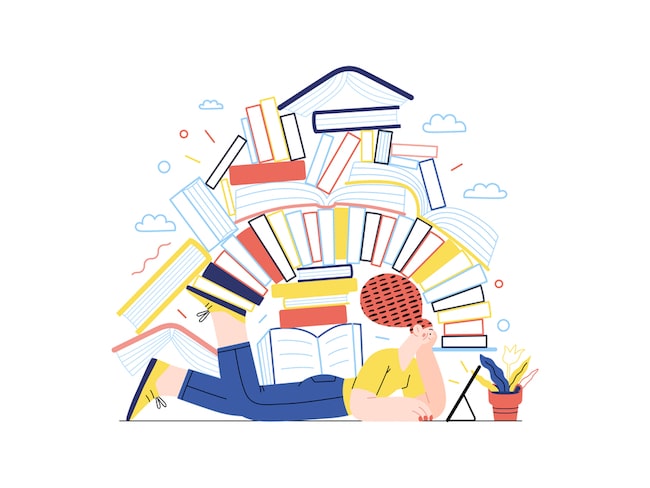
Reading about ADHD and ADD is good for you
There are a number of reasons why you might consider following a few blogs on ADHD. For one, regularly reading blog content written by other parents and/or individuals who struggle with ADHD can be motivating and keep you going when you’re having a tough time dealing with the day-to-day challenges of attention based learning difficulties. It’s also good to get different perspectives on ADHD, as no two individuals will have the same difficulties or severity of symptoms.
Moreover, you may find that new advances in ADHD treatment or strategies are discussed and that by exploring ideas in greater detail you begin to feel more empowered and change how you navigate the condition at home and at school. This is especially important when it comes to serving as an advocate for an adult worker or child who requires particular accommodations to be successful. Doing your own homework and staying abreast of new developments and resources will enable you to be more confident when dealing with doctors and school specialists.
If you don’t want to enter your email and subscribe to a blog’s regular updates, we recommend following the Instagram account and/or Facebook page associated with the blog. That’s because creating an ADHD and ADD focused social media feed will allow you to pick and choose the resources and content you engage with and keep you from feeling overwhelmed by a full inbox.
Consider sharing your experiences
Just as it’s helpful to read about ADHD, it can also be beneficial to join in the discussion by leaving comments, replying to social media posts or even drafting a blog post of your own. Many of the sources listed above routinely publish guest-blogs, especially when a parent or adult with ADHD is interested in sharing a personal experience, resource or school strategy. If you’re particularly ambitious you might even set up your own blog!
For individuals who hesitate to publish online, try writing an ADHD experience journal where you keep track of your thoughts, feelings, discoveries and life events. It is a great way to get your ideas out on paper and let go of some of the strong emotions that can build up with ADHD. It will also serve as a long-term record to remind you that not every day is bad and there are just as many positives as negatives when you take a bird’s eye view.
What’s important is that children, adults, and families with ADHD get the support they need and an ideal way of doing this is to join an online community of like-minded and empathetic individuals.
For learners who struggle with attention difficulties
TTRS is a program designed to get children and adults with attention difficulties touch-typing, with additional support for reading and spelling.
Chris Freeman
TTRS has a solution for you
An award-winning, multi-sensory course that teaches typing, reading and spelling
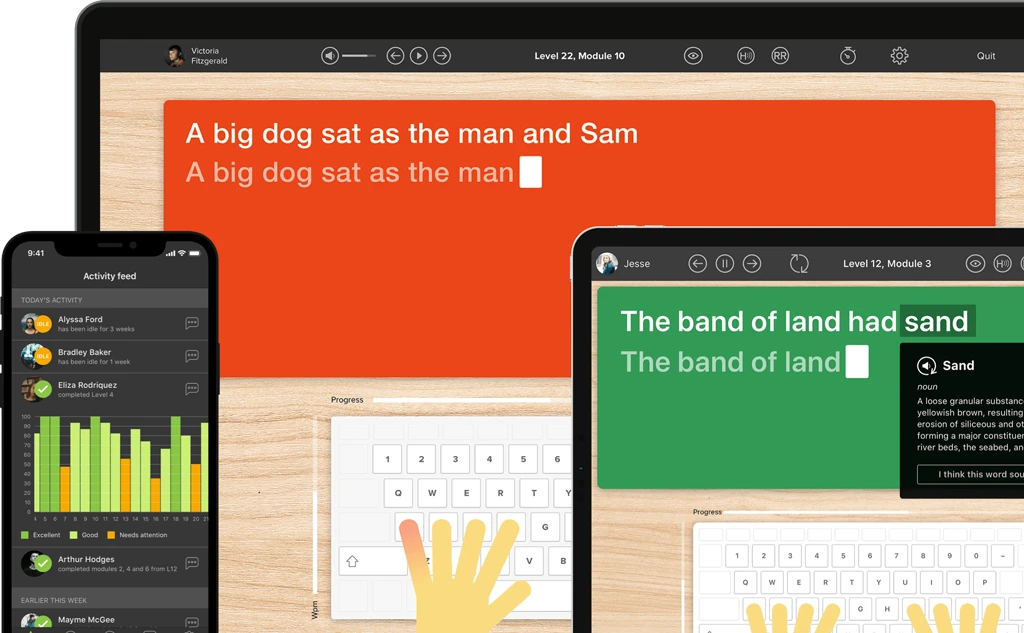
How does TTRS work?
Developed in line with language and education research
Teaches typing using a multi-sensory approach
The course is modular in design and easy to navigate
Includes school and personal interest subjects
Positive feedback and positive reinforcement
Reporting features help you monitor usage and progress







